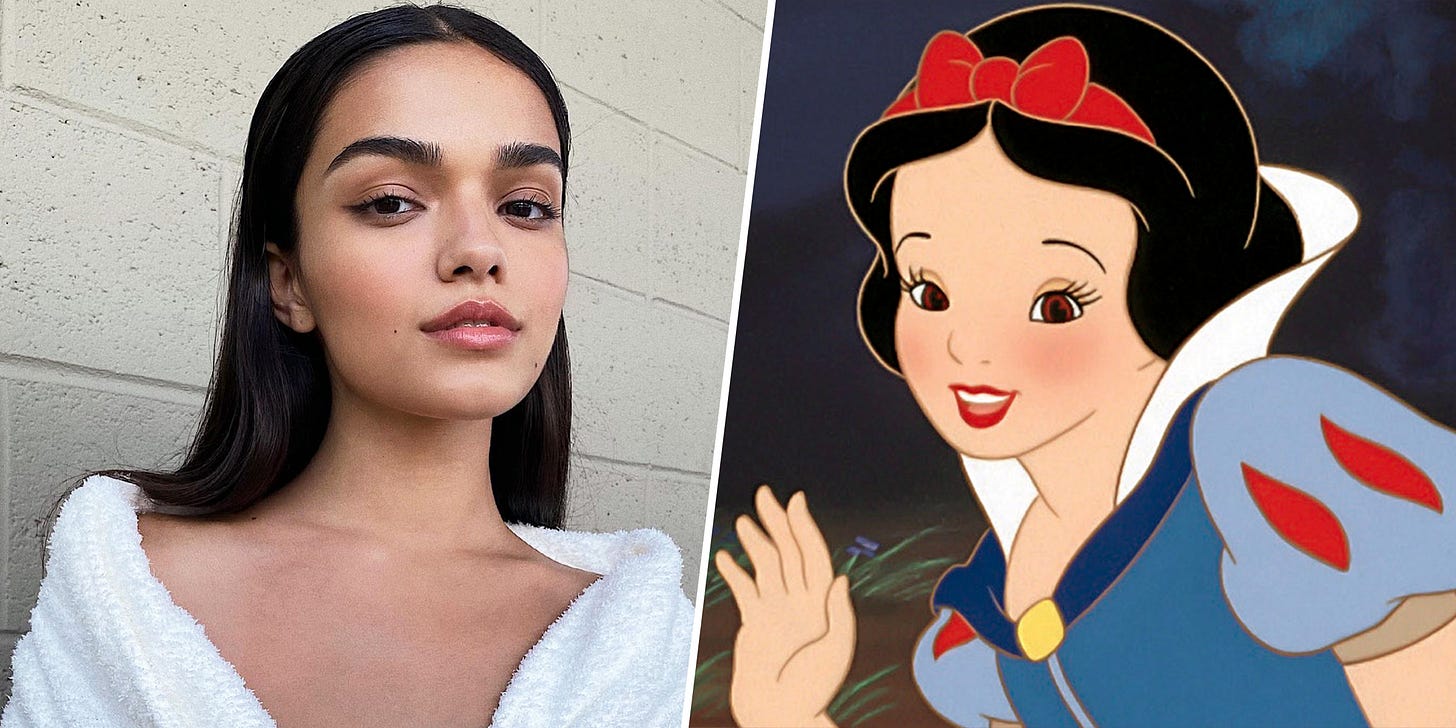Opinion | It's time to step away from the white narrative in Disney princess movies
Recent casting controversies bring Disney princess films to the forefront of racist dialogues.
In March of 2021, Disney announced the casting of Rachel Zegler to play Snow White in the 2024 live-action remake. However, many fans were upset and criticized Disney for casting Zegler because she is a woman of color. Since the announcement, Zegler has received violent threats and harassment, with attempts to get her fired from the role.
Unfortunately, this is not the first time audiences have criticized Disney for casting dark-skinned princesses. According to Joe Garza via Medium on March 23, they claim that changing the race of Disney princesses is considered “disrespectful to fans.”
However, this is simply not the case. Dr. Roland Williams, a specialist in Hollywood cinema, explains that “as a society, we’ve been forced into certain ways of looking at the world.” Casting non-white women as princesses “stems from our history as a country and our sense of race and social identity” he continued. This ideology of ‘disrespect’ is just a mask to advocate for white supremacy by keeping the white narrative at the center of cinema.
Before the announcement of a live-action adaptation of Snow White, the controversy of non-white princesses surrounded Disney’s 2019 casting of Halle Bailey as Ariel in the live-action adaptation of The Little Mermaid.
Shortly after the announcement, the hashtag #NotMyAriel was trending on X. This hashtag was not just a message of frustration directed towards Disney, but an attempt to take women of color out of the spotlight.
Disney princess movies are historically rooted in white supremacy and have kept non-white women out of the public eye for decades. Every Disney princess from 1937 to 1992 was white, written by white people through white perspectives. Additionally, when Disney started to diversify their princesses, the movies were still heavily whitewashed and racist. The 1992 Aladdin, for instance, perpetuated a racist and sexist portrayal of Princess Jasmine.
With live-action remakes such as Snow White and The Little Mermaid, Disney has publicly acknowledged racial stereotypes in some of their classic films and is striving to get better.
In the fall of 2020, Disney added a 12 second disclaimer to some classics (including Aladdin) on Disney+ that reads: “these messages were wrong and are still wrong now. Rather than remove this content, we want to acknowledge its harmful impact, learn from it and spark conversation to create a more inclusive future together.”
Disney is attempting to eliminate racial stereotypes and make Disney princess films more inclusive and diverse. It is time for Disney fans to accept the new live-action princess films and start to push away from this historically white narrative. Disney is not making princess movies exclusively for their white audience anymore; they are focusing on the message and impact these stories have on viewers all over the world.


